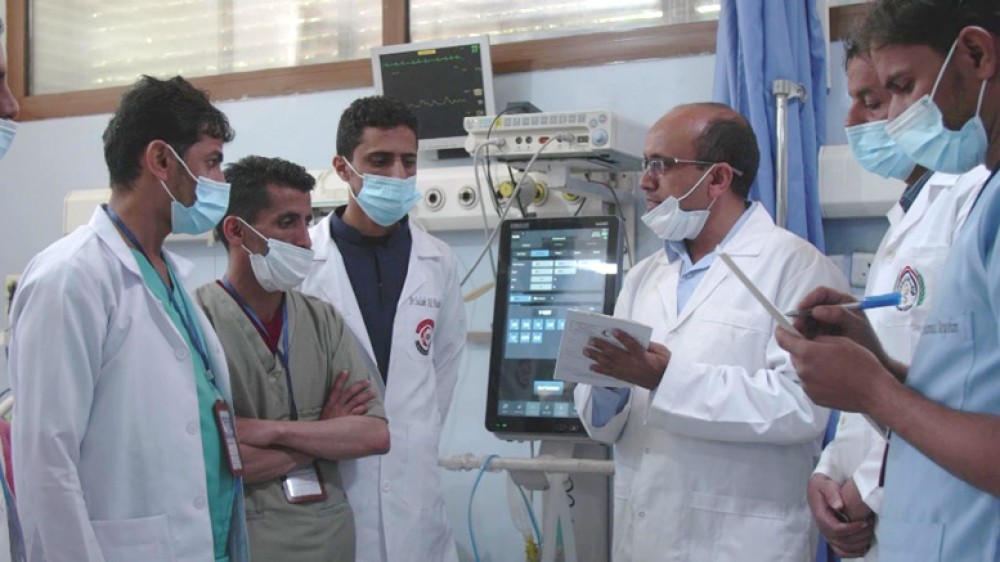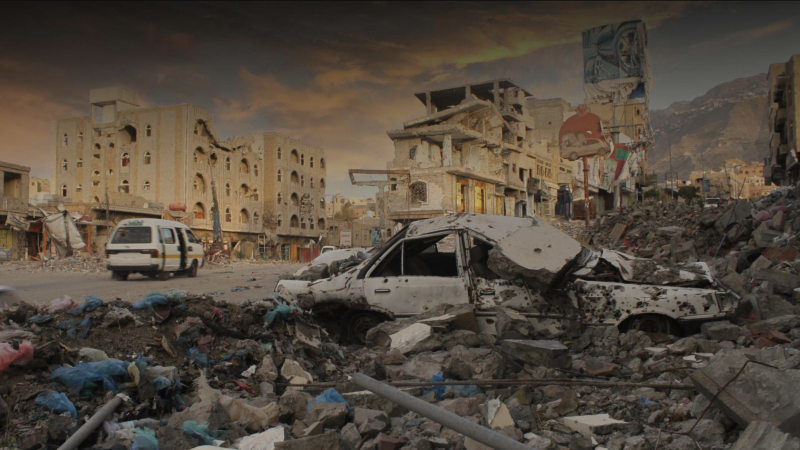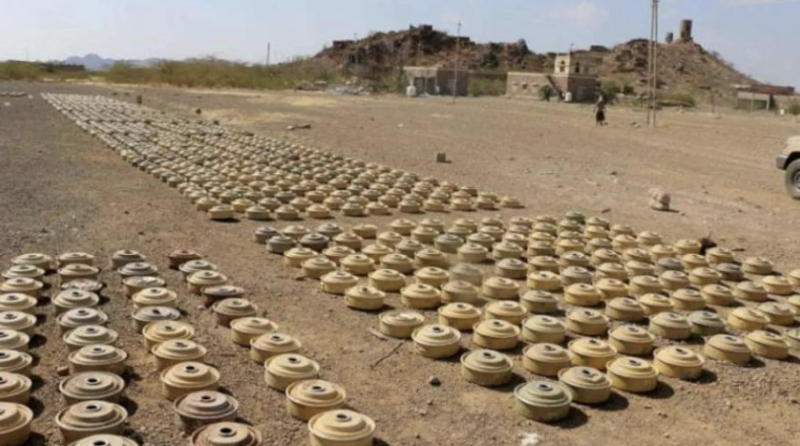WHO support to Yemen’s hospitals helps deliver lifesaving services and guides strategic investments


Sanaa-Aden
Since the start of Yemen’s protracted crisis, WHO and the country’s health authorities, in partnership with the World Bank, have helped prevent the collapse of more than 100 hospitals.
WHO support provides essential resources like medicines and equipment, and fuel to mitigate frequent power cuts, benefiting millions of Yemenis. Between November 2023 and June 2024, over 3.9 million people received health care at supported hospitals: 1.1 million people were treated in emergency rooms, 324 000 received inpatient care and 206 000 surgeries, 93 000 deliveries and 38 000 caesarean sections were performed.
WHO support in 2024 has included the procurement of US$ 7 million of essential commodities, including insulin and other diabetic and cardiovascular medicines, intravenous fluids to treat infections, including cholera, and diagnostic laboratory kits. WHO also distributed 66 374 cylinders of oxygen to 37 facilities and 3.7 million litres of fuel to 143 facilities. Supplies are distributed on a needs basis, determined in collaboration with health authorities and facilities.
WHO Representative to Yemen Dr Arturo Pesigan explained the impact of WHO’s partnership with the World Bank: “These essential investments not only save lives but stabilize Yemen’s entire health infrastructure amidst the prolonged crisis, ensuring essential services reach those in need. Without these resources, the system would be at risk of collapse.”
In recent years, in accordance with the humanitarian-peace-development nexus approach, WHO has complemented its provision of lifesaving support with efforts to improve the quality of care in supported facilities and strategic action to guide future investments.
In collaboration with WHO and the Ministry of Public Health and Population, 7 hospitals are engaged in an initiative to strengthen their resilience to climate change. The initiative focuses on developing hospitals that are safer, greener and more capable of responding to emergencies. WHO plans to expand the pilot initiative to more hospitals, improving emergency preparedness, operational efficiency and health system resilience.
WHO guided the development of Yemen’s first-ever hospital sector profile, and in 2024 initiated work on the country’s first hospital sector strategy with the goal of improving planning and implementation of people-centred hospitals, strengthening preparedness and emergency response and supporting the monitoring and evaluation of hospital sector performance.
To improve the management of medical equipment provided to supported facilities, WHO is working with the Ministry of Public Health and Population to pilot an inventory management system. Already operating in 5 hospitals, the system records details such as the quantity, condition, location and maintenance status of each medical device in the facility. The project will contribute to optimizing the procurement, use and maintenance of medical equipment, improve operational efficiency and enhance patient safety.
Looking ahead, WHO support to hospitals is expected to continue with World Bank funding. Efforts are also underway to mobilize additional domestic and international resources. These investments are crucial to provide services, save lives and improve the well-being of millions of vulnerable Yemenis.
Source: WHO

Aden — Security sources have revealed that dozens of irregular African migrants landed on the shores of Shabwa governorate in southeastern Ye…

Washington – Yemen has been ranked among the world’s top 20 countries experiencing the highest levels of political and deadly violence…

Aden – The operations room of the Saudi-funded Masam demining project announced that its field teams have successfully removed 2,656 landmine…